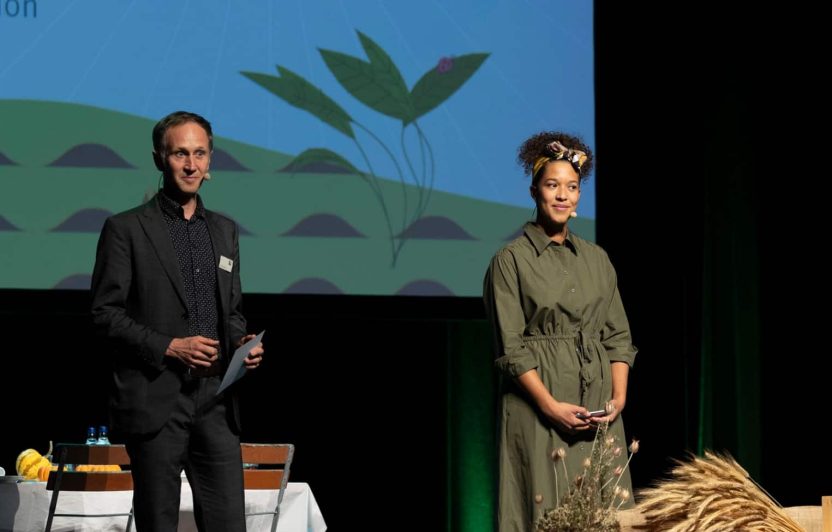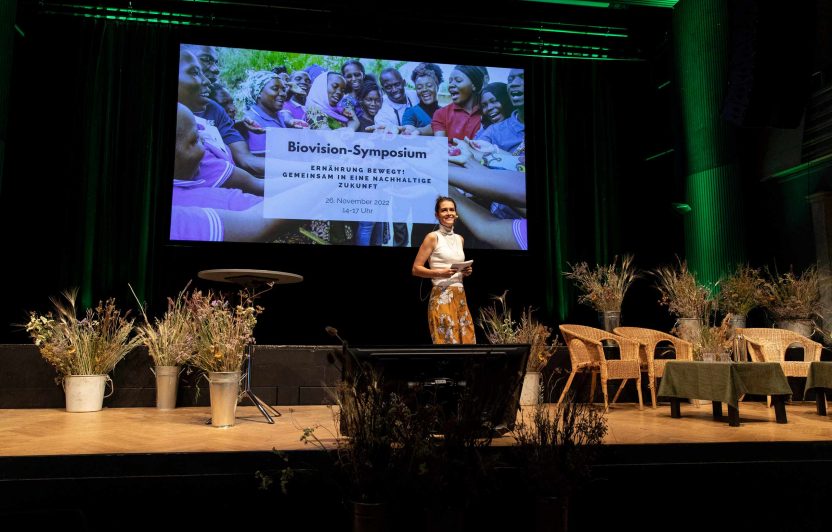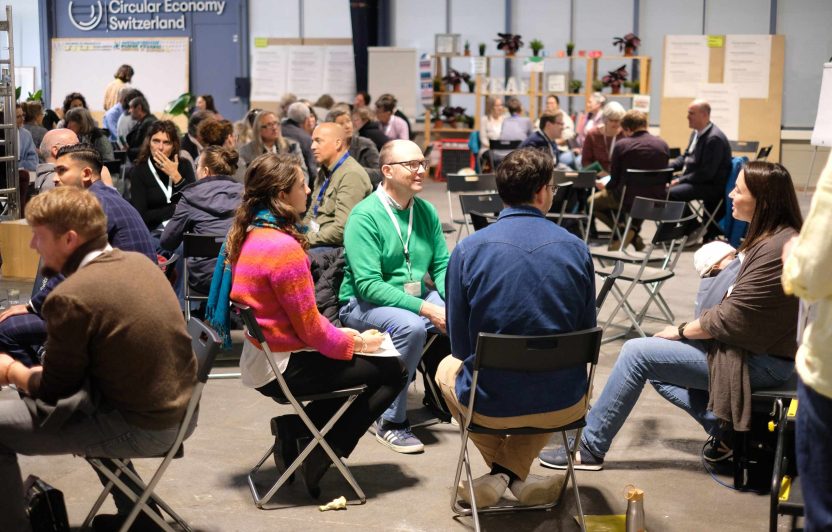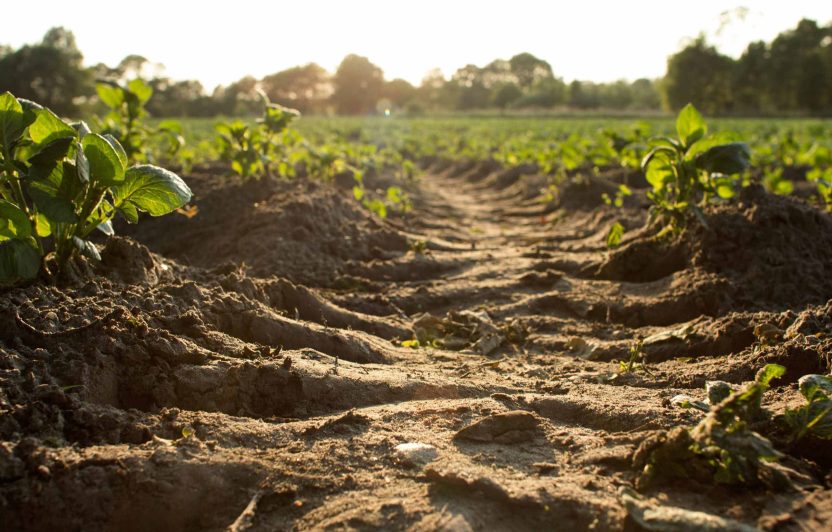In 2021, the future of our food systems was hotly debated and sustainable solutions sought. In this interview, Biovision President Hans R. Herren and Executive Director Frank Eyhorn explain what came of these discussions and which levers Biovision will be pulling in the coming year.
The way we produce and consume our food has a major impact on the environment (climate change, biodiversity loss, etc.). And the further increase in world hunger and malnutrition shows that our food systems are not working as they should. They therefore urgently need to be transformed.
Throughout the year, issues related to nutrition were hotly debated both globally and in Switzerland. The international community looked for solutions at the UN Food Systems Summit (UNFSS 2021). In Switzerland, the future agricultural policy was debated and the electorate rejected two initiatives to drastically reduce the use of pesticides in agriculture.
At the end of 2021, where do we stand in terms of the sustainable transformation of food systems and what progress has Biovision made? Hans Rudolf Herren, President, and Frank Eyhorn, Executive Director of Biovision answer these questions.

Bisher war Biovision vor allem bekannt für ökologische Lösungen in der Landwirtschaft. Weshalb spielen jetzt Ernährungssysteme eine so wichtige Rolle?
Hans Rudolf Herren (HRH): This represents a continuation of the holistic approach that Biovision has always followed. The huge problems of our time, such as hunger, the climate crisis or the global extinction of species are directly related to the way we produce our food and feed ourselves. A holistic approach is needed to address these complex challenges. That’s why we are now considering the food system along the entire value chain from field to fork. Everyone from farmers to stakeholders in the food industry, retailers, consumers and politicians must take action and work together.
Frank Eyhorn (FE): The most promising way to achieve the sustainable transformation of our food systems is through agroecology. This is an approach that has guided Biovision for a long time. It aims to harmonise the different dimensions of agriculture, i.e. not only environmental, health and social aspects, but also the economy, and to make targeted use of synergies. The idea is to produce enough healthy food in harmony with nature whilst ensuring both fair conditions for farmers and affordable prices for consumers.
Where has the greatest progress been made this year in the sustainable transformation of food systems?
FE: We have noticed that in Switzerland, in sub-Saharan Africa as well as internationally, there is greater awareness of the importance of food and sustainable nutrition. There is a growing realisation that solving the associated major problems of our time is a task for society as a whole that cannot simply be left to the agricultural lobby or agricultural policy.
HRH: However, I feel as if we are still at the very beginning. Although we are familiar with the problems and their causes, far too little is still being done to solve them. In the meantime, there are countless practical examples, including Biovision’s projects, which show that agroecology offers a way out of the impasse. Unfortunately, it is still paid too little attention and not sufficiently acknowledged by the political decision-makers.
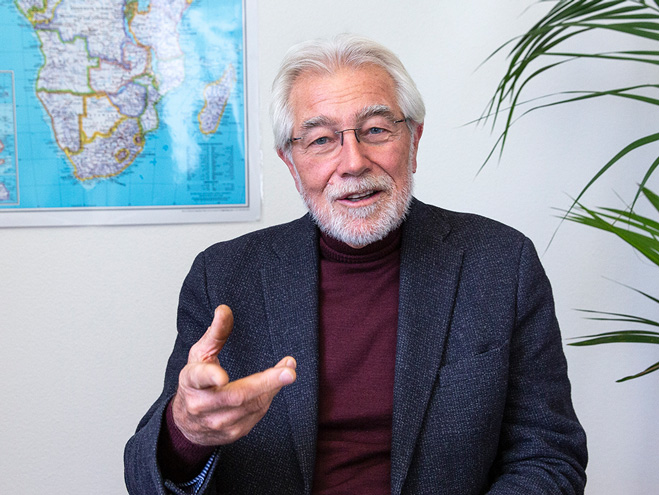
Where are the biggest problems in politics right now?
HRH: I believe that it is primarily the politicians who are responsible for bringing about change now. They should adapt the framework conditions much more quickly and shape them in such a way that sustainable solutions in food systems can be promoted, developed and expanded by those affected. There is a lot of money, as well as huge economic interests, at play in the food system. The representatives of agroecology usually have a hard time against the lobbying of the agricultural industry. That’s why decisions are still being made today that are wrong from a sustainability point of view. In Ethiopia alone, for example, about 12 large artificial fertiliser factories are currently being built, although this is obviously the wrong direction to go in. However, a change in attitude is slowly taking place. This is shown, for example, by the establishment of the coalition for agroecology at the UN Food Systems Summit
This major international event held in New York in the autumn was an opportunity for the global community to rethink sustainable approaches to food production and consumption. What came of it?
FE: Biovision took part in the preparations for the UN Food Systems Summit in Switzerland and globally. Along with many other representatives of organisations from science, civil society and progressive governments, we tried to move the outcome of the summit clearly in the direction of more sustainability. We wanted to promote a paradigm shift away from the focus on the highest possible yields and cheap calories. Instead, the emphasis should be on holistic approaches that provide healthy food for all, produced in a way that respects the environment, animal welfare and human rights, while providing fair wages for everyone.
And did you succeed?
FE: Agroecology was at least recognised as an important approach for the first time at a UN summit. A broad coalition to promote agroecology has been formed between countries including Switzerland and major organisations such as the African Union, the UN Food and Agriculture Organization (FAO) and the United Nations Environment Programme (UNEP). Another important achievement of the summit is that the issue of nutrition is now viewed from a systemic perspective. Today it is generally accepted that everything is intertwined: agriculture, health, the environment, the economy, human rights and climate change. The previous silos have been broken down to some extent.
HRH: Personally, I find it a great pity that agroecology is only seen as one solution among others, while environmentally harmful methods of industrial and traditional agriculture continue to exist. If the rapid transformation of food systems is to succeed, then in my view, mainstream agribusiness methods have no place alongside agroecology. This was the conclusion reached more than 10 years ago in the World Agriculture Report (International Assessment of Agricultural Knowledge, Science and Technology for Development IAASTD).
As Hans said: there was also criticism of the summit. The coalition for agroecology is therefore called upon to quickly follow up its declarations of intent with concrete action. Where do levers now need to be pulled?
FE: Policy reform is the most important lever for changing the framework conditions and bringing about this transformation. That’s why I worked hard with Biovision’s advocacy team to ensure that progress was made at the summit in shaping the political framework as well. Relevant documents and recommendations were adopted during the summit (see PDF “Policy Brief Governance of Food Systems Transformation”). Another lever is investment (see Biovision’s Money Flows Report). To this end, we held a high-profile launch event and brought renowned stakeholders on board, such as development banks or influential impact investors. Using concrete examples, we demonstrated that it is worthwhile to channel more funds into agroecological measures and to promote small and medium-sized enterprises that are active in this field (see The Economic Viability of Agroecology).
A more sustainable food system is needed in Switzerland too. For several years now, Biovision has therefore also been active in Switzerland. How does Biovision go about this?
HRH: There needs to be a greater understanding in Switzerland of why a transformation of the food system is necessary. It’s not because I particularly like organic farming rather than the agricultural industry. But if chemicals continue to be sprayed onto our fields, they will eventually end up in the water and soil, where they can no longer be recovered. However, the consequences will continue to have an effect for years to come, for example causing the extinction of species or health issues in humans such as cancer. If we want to continue to credibly advocate for a change of course in food systems in sub-Saharan Africa or at a global level, then we must also ensure that something changes in Switzerland. Biovision has extensive experience in this area and can make a real contribution to ensuring that agroecology finally makes progress in Switzerland too.
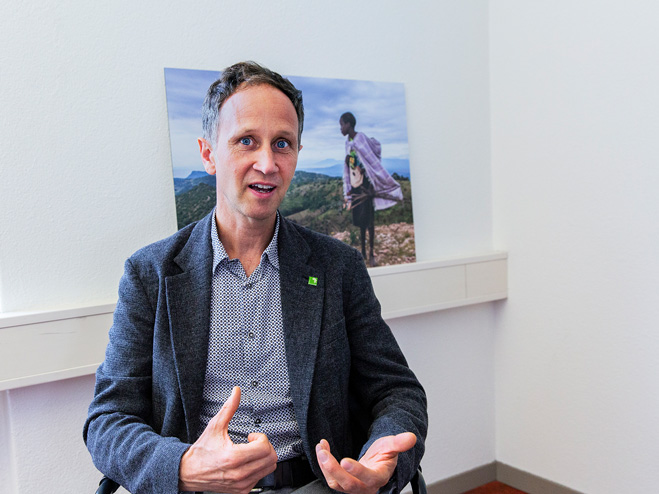
At the moment, however, it looks more like stagnation in Switzerland: the Federal Council’s proposal for somewhat more sustainable agriculture (AP22+) was put on hold by parliament, and at the ballot box the electorate rejected two initiatives for using fewer pesticides. What is the next step, despite all this?
FE: I think that it is now important to overcome the strong polarisation that has arisen from the votes: city versus country, green versus conservative, producers versus consumers, and so on. We have to come together and work out what kind of agriculture and what kind of food systems we want as a society. We need to determine what framework conditions are required to get there.
HRH: In Switzerland there is a culture of compromise, so radical changes are very difficult. Of course, more talks and further information campaigns and persuasion are also needed. Farmers can achieve very good yields with agroecology. But far too few people – especially politicians – are aware of this. One lever that already exists and could make a big impact very quickly is agricultural subsidies. These should only benefit farmers who produce crops according to agroecological principles. This does not require more money, the funds just have to be used differently.
FE: I see a further opportunity in relying on existing agreements, such as concrete goals for environmental protection, the Sustainable Development Strategy and of course the UN Agenda 2030. Discussions and negotiations have already taken place on these strategies and goals, and a consensus has been reached. Now we need to use them as a reference for the transformation of the food system. If all those affected sit down together around the table with these goals in mind, then it will be possible to achieve something.
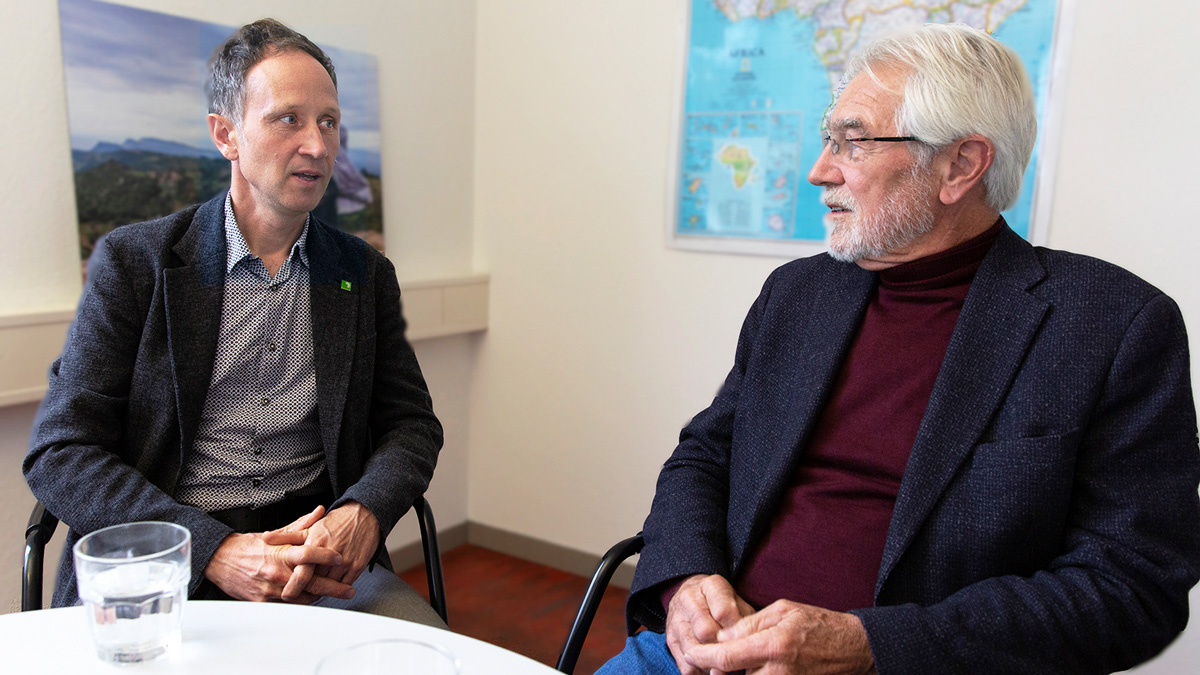
What is your greatest wish for the coming year regarding sustainable and environmentally friendly world nutrition?
FE: I hope that the impetus and momentum created by the UN Food Systems Summit in 2021 will continue and result in further success. In 2021, the official Swiss representatives made a strong commitment to holistic, sustainable transformation – both in their international work and domestically. I therefore hope that this dialogue in favour of a more sustainable Swiss food system will soon continue and that Biovision can play an instrumental role in it.
HRH: I’m sure that awareness for a change of course will continue to grow – including among consumers. But the most important thing is to keep the pressure on the political decision-makers. Here I would like to see more insight into the causes of the problems and insistence on the fact that “business as usual” is not an option. A change of course is needed now to enable our children and grandchildren to continue to live in an intact, diverse environment.
Hans and Frank, thank you very much for the interview.
During the closing plenary of the Food Systems Pre-Summit, the formation of an ambitious Coalition for the transformation of food systems through agroecology was announced. In connection with the Committee on World Food Security (CSF), its High Level Panel of Experts (HLPE) and relevant UN agencies and stakeholders, it aims to
- Implement the policy recommendations of the CFS on agroecological and other innovative approaches
- Strengthen research and development programs to support the agroecological transformation
- Strengthen the consistency of the various sectoral policies aiming at the agroecological transformation of food systems
- Ensure that public and private investments promote the adoption and large-scale implementation of agroecological practices


